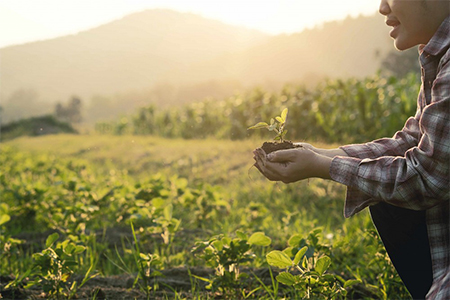
Regenerative farming program makes its way into sustainability
YarnsandFibers News Bureau 2020-10-16 12:47:20 – IndiaThe IDH Sustainable Trade Initiative (IDH) and WWF India have launched a regenerative farming program in the state of Madhya Pradesh, India.
The landscape program entitled ‘Regenerative Production Landscape: People, Nature, Economy aims to promote regenerative and restorative farming principles for cotton and food crops.
The program hopes to develop business models that work towards conserving natural resources such as soil, water, biodiversity as well as small farmers who are at the bottom of the supply chain.
Mainly focused on the chinaware region of Madhya Pradesh, it will be among the first of its kind to endorse economy, social and environmental goals with various stakeholders.
Chhindwara faces a great risk of biodiversity and habitat loss and is considered as ecologically sensitive. The major crops grown include cotton, soybean and maize.
Anita Chester, the head of materials at Laudes Foundation stated that the transition to a regenerative economy is important for all stakeholders, producers, businesses, governments, investors and donors to act as agents of change. She added that testing such an approach could bring innovative and inclusive solutions that are co-developed around a common agenda and vision. She believes that facts must be faced for system-level shifts and that business alone will not make the cut.
Dr. Vidya Soundarajan, the ecological footprint director at WWF India, commented that conserving natural resources, forests and wildlife was the cornerstone of sustainable development. She stated that the platform facilitated various stakeholders to join hands and contribute towards a regenerative production landscape that will go on to strengthen farmer resilience to shocks in the future.
The program will encourage farmers to utilize natural and regenerative farming principles that restore natural resources and reduce emissions from farming. In return, the farmers will benefit from the stable ecological environment, enhanced living and will be able to participate heavily in decision making.
The multi-stakeholder partnership will also consult government institutions and enable them to work towards sustainable and green growth. The business aspect will be expected to source responsibly by creating inclusive supply chain relationships.
Pramit Chanda, the IDH's country director for India, stated that they are in strong belief of the proportion and its approach towards sustainable production, improving smallholders livelihood, growing the economy in return and managing their natural resources suitably.
He added that their plan and approach stared as a vision and will not only suitably impact the business but the lives of the farmers as the business drive the niche sustainable moment to the new normal.
Market Intelligence
Ask for free sample Report

experience
Customer Base
dedicated team
Countries Served Worldwide









